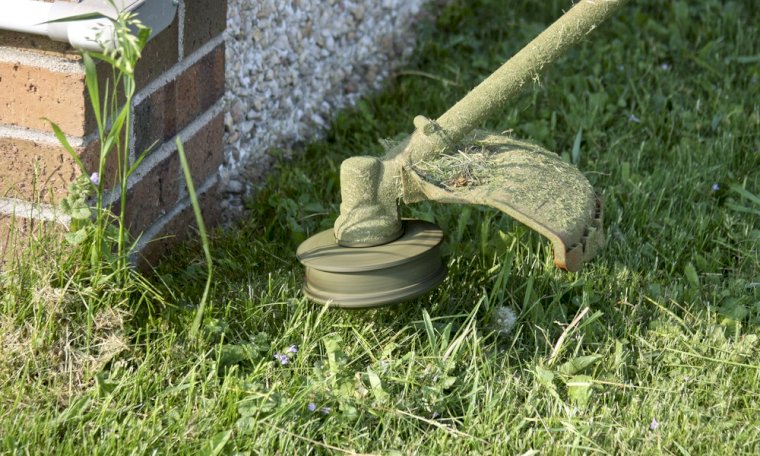The humble weed eater guard, a simple shield of plastic or metal, has sparked quite the debate among lawn care enthusiasts. Some swear by its protective benefits, while others see it as an obstacle to efficiency. Should you keep it on or ditch it? Let’s weigh the pros and cons.
Advertisement
The Case for the Guard
- Safety: The guard’s primary role is to shield you from flying debris propelled by the spinning trimmer line. Rocks, sticks, and other yard waste can become dangerous projectiles, and the guard can minimize painful injuries.
- Line Management: Many guards have a built-in cutting blade to keep your trimmer line at the optimal length. This prevents engine strain and ensures better cutting power.
- Liability: Tampering with safety features like the guard could leave you liable in case of an accident. It might also void your equipment’s warranty.
The Argument for Removal
- Precision: The guard can obstruct your view, reducing accuracy around delicate landscaping and edges. Removing it offers a clear line of sight.
- Maneuverability: Trimming in tight spaces or around obstacles becomes easier without the guard’s added bulk.
- Potentially More Power: Some argue a longer trimmer line (possible without the guard) might offer slightly more cutting power for tough weeds.
The Verdict: It’s Situational
There’s no universal right answer. Consider these factors:
- Your Experience: Newbies should definitely keep the guard on for added safety. Experienced users might make a calculated risk.
- The Job: Wide open lawns with soft grass pose less risk than rocky or stick-filled areas.
- Safety Gear: Never, ever trim without eye protection, sturdy pants, and boots – especially if the guard is off.
Safety First, Choices Second
Regardless of whether you use a guard, always prioritize safety:
- Clear your working area of potential projectiles.
- Wear proper gear at all times.
- Be aware of where debris is being flung.
- Maintain your weed eater to prevent broken lines.
Ultimately, the choice is yours. Weigh the increased efficiency against the potential safety risks and make a responsible decision for your own yard care needs.
Earl Gibson
Earl has been running small gardening and handyman business for the past four years. Besides getting his hands dirty, he enjoys learning about art and technology. In his spare time, he writes articles to share what he's learned over the years.
Related posts
Advertisement
Advertisement
Tags
auto (19)
battery (14)
business (16)
diy (168)
equipment (77)
family (19)
food (28)
gardening (80)
gas (18)
health (11)
home (123)
kids (12)
maintenance (130)
money (99)
mowing (19)
plants (25)
PPE (14)
repair (25)
review (13)
saftey (46)
tech (22)
technology (32)
tools (65)
travel (19)
troubleshooting (76)
tutorial (18)
work (55)

